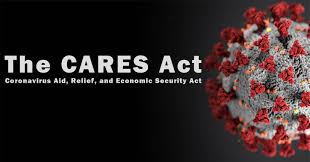
USA - The Coronavirus Aid, Relief and Security Act (The CARES Act) provides $349 billion in loans and potential grants to small businesses for much-needed cash flow relief during these challenging times.
The Act was passed in the Senate on March 25, 2020 and in the House of Representatives on March 27, 2020, and signed into law by President Trump.
This Memo summarizes the key highlights of the loan and grant program for small businesses under the Act.
Is financial relief available for small businesses under the CARES Act?
Yes! The Act provides forgivable loans to small businesses affected by Covid-19 of up to $10 million each in an amount equal to 2.5 times their average monthly payroll expenses (excluding any portion of wages over $100,000 annualized for any employee).
Who is eligible to receive the financial relief?
Financial relief is available to small businesses in the United States with 500 or fewer employees working in one location.
What type of financial relief is available?
The Act allows small businesses to apply for loans that can be forgiven if the loan proceeds are used to cover any payroll expenses (with a cap on wages of $100,000 annualized for each employee), employee healthcare benefits, rent, utilities, and the interest portion of mortgage and pre-exiting business debt payments from February 15, 2020 to June 30, 2020. In other words, the loan will convert to a non-repayable grant to the extent that the funds are used for these expenses during the February 15, 2020 to June 30, 2020 time period.
How is the loan amount calculated?
While the loan amount is based on the last 12-month payroll, there is an alternative 12-week test that can be used by certain seasonal employers that have a larger wage base in the spring season. For purposes of calculating payroll, employees
can include full-time and part-time employees and even some independent contractors.
What type of security or collateral is required for these loans?
Loans are non-recourse, with no collateral or personal guarantees needed, and are backed by the government with no guarantee fees.
Are there any requirements or other strings attached to these loans?
Loan forgiveness can be reduced if there are layoffs or reductions in staffing during the period from February 15, 2020 to June 30, 2020. As such, businesses need to carefully weigh personnel decisions against impacts to loan repayment. Reductions in forgiveness are generally proportional to staffing cuts.
Note that to qualify for these loans the business must submit a certification attesting that the funds will be used for the allowed purposes and that the “uncertainty of current economic conditions” makes the loan necessary to support ongoing operations.
Are affiliates also entitled to receive their own loans or is it limited to one loan for the entire family of companies?
It may be possible that affiliated companies that maintain separate payrolls may qualify for loans independently, although affiliated companies will need to be careful to not have duplicative requests based on wages for the same personnel and to avoid any duplication of expenses in forgiveness documentation.
So, how do you get started?
Contact your preferred lender of choice and see if they are an authorized lender with the Small Business Administration (SBA). The Act authorizes any SBA-approved lender to issue these loans.
This summary is not intended to give, and should not be relied upon for, legal advice in any particular circumstance or fact situation. No action should be taken in reliance upon the information contained in this article without first obtaining the advice of a licensed attorney. Contact Andica Kunst at Rasco Klock Perez & Nieto for more information.
© 2023 Alliance of Business Lawyers. All rights reserved.